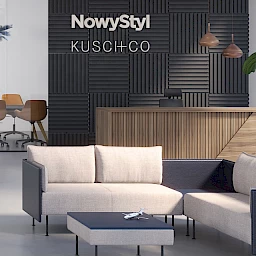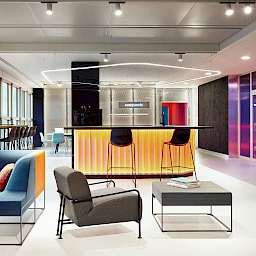Karolina Manikowska and Roman Przybylski of Nowy Styl are as close to current trends in office furnishing as anyone. They talked to OFFICE ROXX about the future office and its furnishings.
OFFICE ROXX: Covid-19 has shown that it is possible to abandon the office to a certain extent. Will offices soon be a relic of the past?
Karolina Manikowska (KM): I do not share this approach. It’s not that we can just eliminate the office. According to a study conducted just before the pandemic, the office was one of the most popular workplaces.
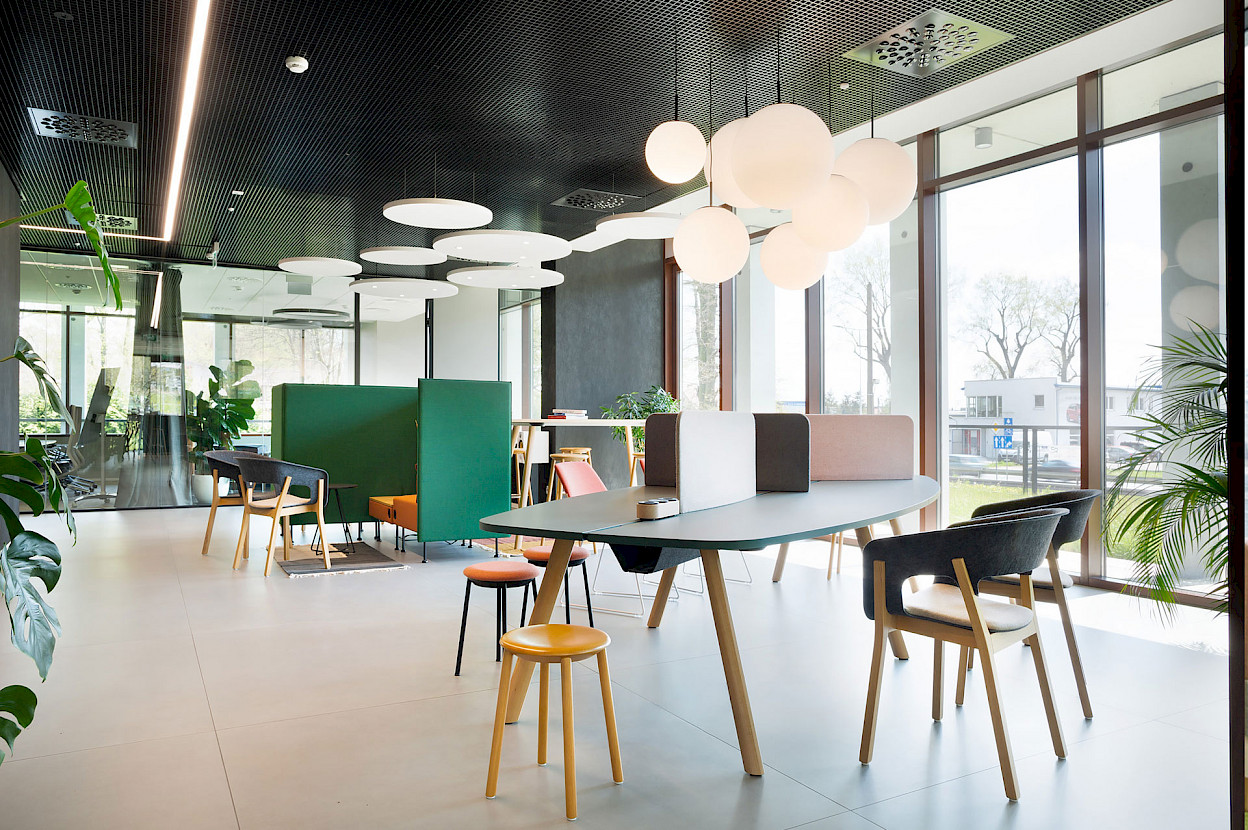
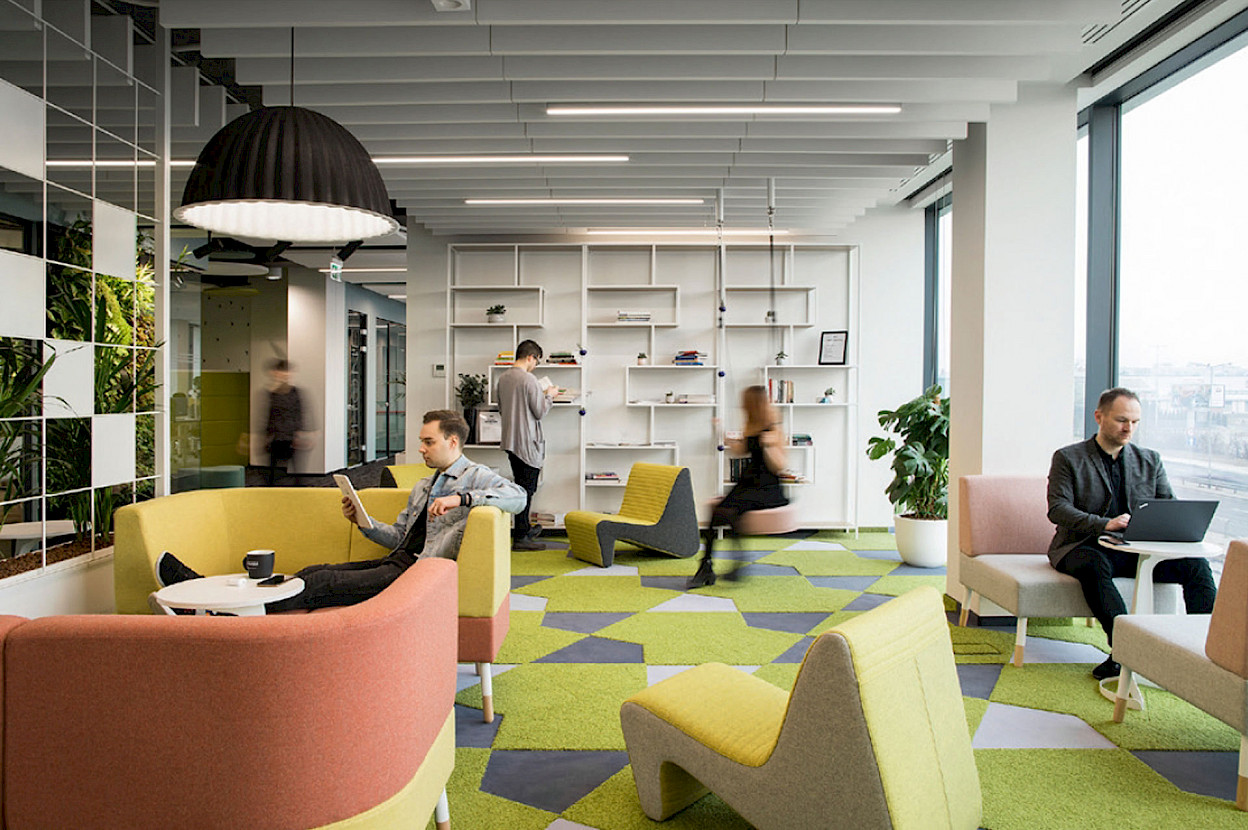
What will be the situation after the pandemic? Are the current working models still appropriate?
KM: We conducted a survey asking respondents what they expect from their office. The answers are clear. The office is still necessary, even if the function will change. During the pandemic – with working from home or remote work – employees missed the social aspect at work: the opportunity to have a quick chat, an informal meeting around a cup of coffee, or health factors such as an ergonomic workstation. Respondents also agree on which tasks they would prefer to perform in the office and which in another place. The office offers employees added social value – thanks to interaction and the exchange of ideas and information, it supports the execution of the respective task and employees can also feel like a team again. Strengthening team cohesion after a pandemic is also about creating opportunities to learn from and inspire each other.
And what should this look like?
According to employees, there should be a space in the office where you can work in a concentrated way. We notice the following trend among our clients’ employees: colleagues who work hybrid prefer to choose secluded or separate areas in the office when they do individual work that requires a lot of concentration. When they work as a team, priority is given to the canteen or comfortable seating areas. Due to possible distraction factors, not all employees can work from home under appropriate conditions if the job requires a high level of concentration. In future offices we should therefore pay more attention to making up for this deficit in quiescence.
Leaving the pandemic aside, what else do you consider to have the potential to accelerate change in offices?
Roman Przybylski (RP): Climate change. Drought, forest fires, floods or tornados – these events have increased sharply in recent years. The time will come, perhaps as soon as five or ten years from now, when we will be forced to react quickly and take action at short notice, as in the case of the Corona virus.
KM: We need to reduce CO2 emissions. We need to rethink how we approach commuting to work and how we think about business travel and supply chains.
RP: But one is certain: we will always need office space. After any crisis, no matter how bad, the best way is to get back to normal as quickly as possible.
Robots and bots can already replace humans in many respects. Does artificial intelligence signify the end of office work?
RP: Regarding the scenario of humans being replaced by machines and software, I am optimistic. The development of new technologies will increase exponentially, but machines and bots will predominantly take over repetitive, strenuous tasks. We can then focus on creativity, problem solving or scientific research. In these areas, I don’t see any danger of us humans being replaced by machines. Not by 2030, nor by 2050 or 2100.
KM: Let’s look at purchasing processes, for example. Today, software programs already take over simple tasks, such as filtering according to criteria, processing certain data and determining a result. Nevertheless, a human being is needed to evaluate the result. In addition, certain non-measurable criteria must be included, which must also be taken into account for the final decision. Computers are devoid of empathy. Empathy is a human characteristic. We can be sure that wherever empathy is required, no machine can replace us.
Will we still replace office furniture with new models in the future or rather reuse existing furniture?
RP: The circular economy is already one of the essential criteria in some tenders. For example, in the Netherlands, where recycling of existing furniture must be part of the bid. This trend will most certainly catch on in other countries as well, and the proportion of reused furniture will gradually increase. Nevertheless, this trend by no means means implies that production lines will soon be shut down, because no piece of furniture lasts forever. Repairs and restoration will reach their limits at some point.
KM: There is another aspect – an office is also a service. Our company takes a holistic view of the office: The client pays a lump sum to rent office spaces. The amount also includes a certain number of services. These include basic equipment as well as maintenance and repair work, remodeling, inventory and waste disposal. Circulation management could, of course, be another part of the service. But we have to keep in mind that these developments are often slower in other countries, where buying new products is often considered a status symbol.
What is your recipe for an office of the future?
RP: Design and furnishing should be the result of collaboration between several specialists. One is responsible for ensuring that the building fulfills its aesthetic role. The others are responsible for analysing the company’s work processes. Based on this, they organise the office and put together suitable equipment to ensure efficient and healthy work. This is what the perfect division of labor would look like. Instead of any science fiction solutions, this is the approach I would like to see in 2030.



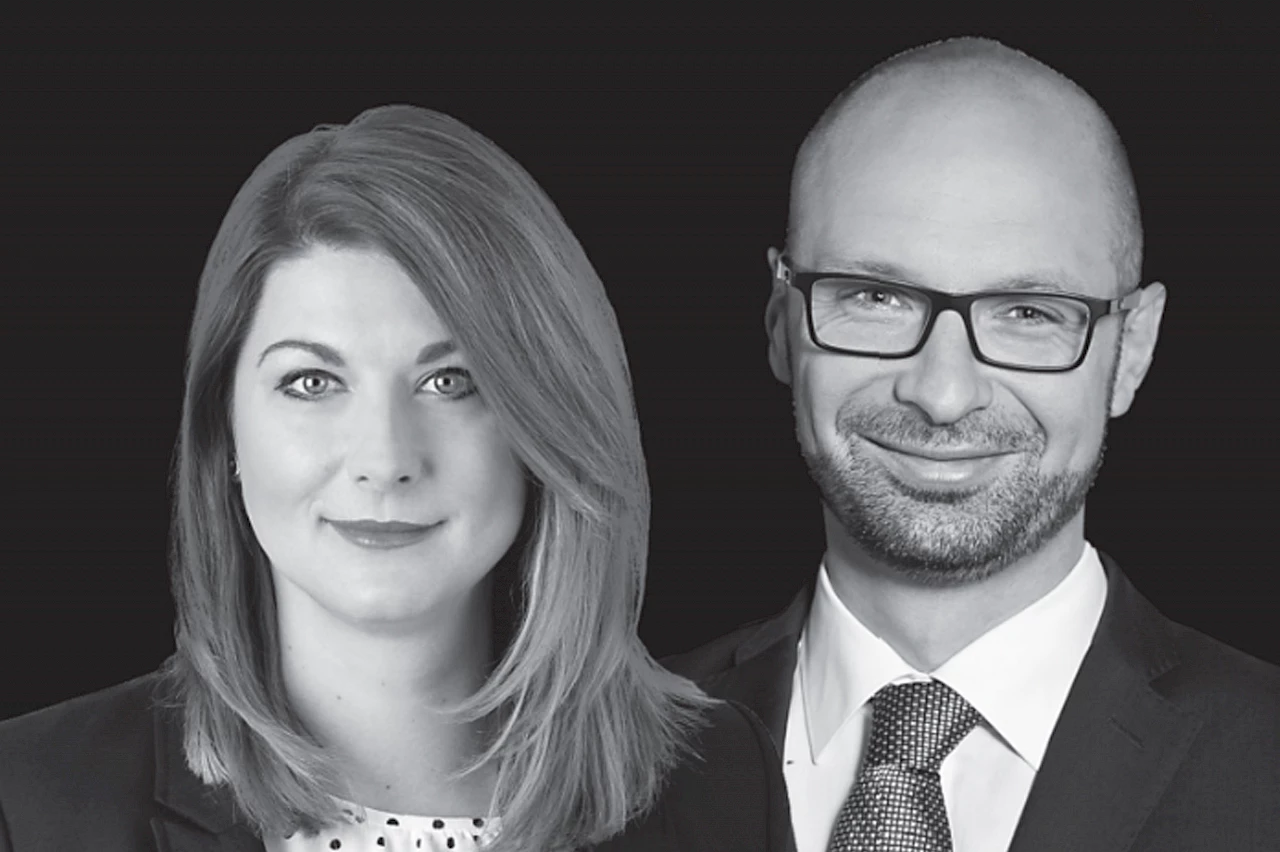
 OFFICE ROXX
OFFICE ROXX 